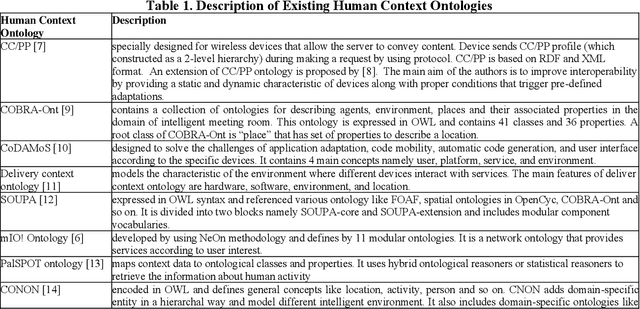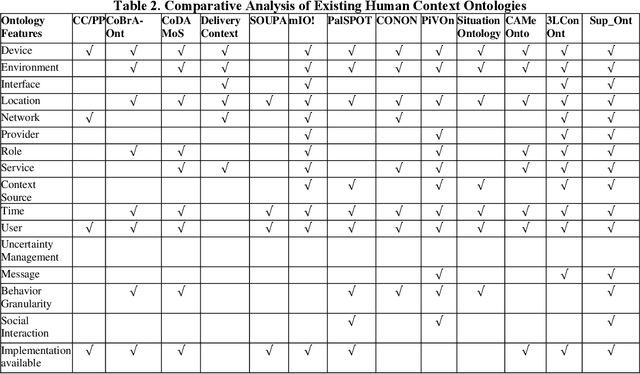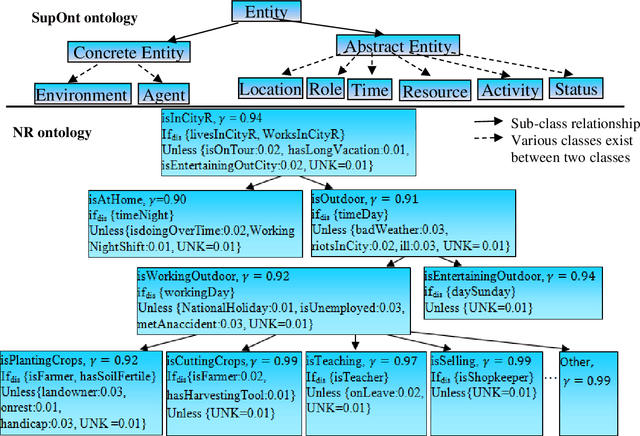Semantic Contextual Reasoning to Provide Human Behavior
Paper and Code
Mar 19, 2021



In recent years, the world has witnessed various primitives pertaining to the complexity of human behavior. Identifying an event in the presence of insufficient, incomplete, or tentative premises along with the constraints on resources such as time, data and memory is a vital aspect of an intelligent system. Data explosion presents one of the most challenging research issues for intelligent systems; to optimally represent and store this heterogeneous and voluminous data semantically to provide human behavior. There is a requirement of intelligent but personalized human behavior subject to constraints on resources and priority of the user. Knowledge, when represented in the form of an ontology, procures an intelligent response to a query posed by users; but it does not offer content in accordance with the user context. To this aim, we propose a model to quantify the user context and provide semantic contextual reasoning. A diagnostic belief algorithm (DBA) is also presented that identifies a given event and also computes the confidence of the decision as a function of available resources, premises, exceptions, and desired specificity. We conduct an empirical study in the domain of day-to-day routine queries and the experimental results show that the answer to queries and also its confidence varies with user context.
 Add to Chrome
Add to Chrome Add to Firefox
Add to Firefox Add to Edge
Add to Edge